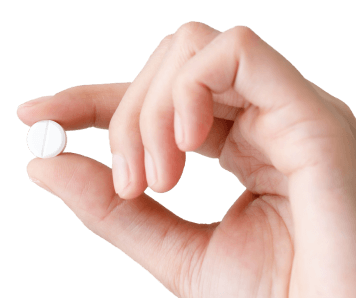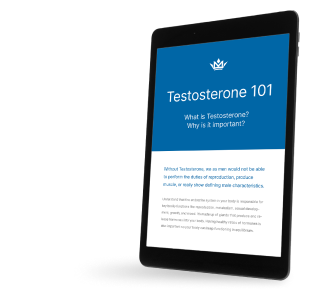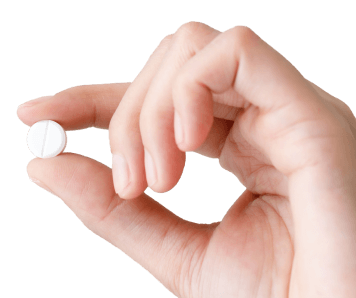Key takeaways:
- TRT itself doesn't directly cause hair loss, but it can affect the hormone DHT, which is linked to male pattern baldness.
- Hair loss is influenced by genetics, and individuals with a family history of baldness may be more sensitive to DHT.
- The impact of different TRT methods on hair loss is not entirely clear. However, excessive doses and certain TRT application methods may affect the hair growth cycle.
According to the Cleveland Clinic, as many as 70% of men will start losing their hair with age, and 25% of bald men begin to see signs of hair loss before turning 21. While your genes play a significant role in whether or not you’ll go bald, hormones can also be involved. To be a bit more specific — your sensitivity to certain hormones may determine your predisposition to baldness.
This may have you wondering, can TRT cause hair loss if it messes with your hormone levels?
Ahead, learn about testosterone replacement therapy and hair loss, including what you can do if you have a family history of baldness and low testosterone (T).
Why, exactly, do men go bald?
Baldness among men is influenced by your genetic makeup and your male sex hormones. Typically, it manifests as a receding hairline and thinning of hair on the crown of your head.
But let’s dive in a bit deeper. In adult men, 10% of testosterone each day is converted into a hormone called dihydrotestosterone (DHT), which plays a critical role in the development of sexual organs and male characteristics like body hair, pubic hair, and facial hair. When DHT levels are too high (which is typically a result of testosterone being too high), the hormone can reduce the size of your hair follicles and shorten the hair growth cycle, leading to hair loss.
Does high testosterone cause hair loss?
High testosterone doesn’t necessarily cause hair loss. High testosterone leads to high DHT, and DHT can cause hair follicle shrinkage, but only among people with a genetic predisposition to baldness. As one researcher explained, male pattern baldness is the result of overly sensitive scalp hair follicles you inherited from your family members. So, it’s not the amount of testosterone or DHT that causes baldness, but how vulnerable your follicles are to these hormones. And genetics determine that vulnerability.
Let’s take a look at how your genes affect hair loss:
Researchers suspect that several gene mutations may contribute to baldness among men. However, studies so far only confirm the involvement of the AR gene. This gene regulates the production of a protein known as an androgen receptor, which enables hormones like DHT and testosterone to bind to it, leading to regular hormonal processes like the growth of body hair. But when there are alterations in the AR gene, androgen receptors are more sensitive than usual to these hormones, leading to hair loss.
Does TRT cause hair loss?
Since TRT increases testosterone and DHT levels, many assume it can increase the chances of experiencing hair loss. In some cases, this is true. Like men with naturally high levels of testosterone, men who are genetically predisposed to go bald may be impacted by the high testosterone levels obtained from TRT, which uses a synthetic form of the hormone.
Research conducted by Dr. Vikram Jayaprakash, an Australia-based hair transplant surgeon, found that only subjects who had received a diagnosis of androgenic alopecia experienced a significant increase in the progression of their hair loss while on TRT. Jayaprakash noted that the men experiencing baldness were either injecting massive doses of testosterone for bodybuilding purposes, or men using a topical testosterone for low T levels on a daily dosing regimen. This begs the question, do all forms of TRT increase the risk of hair loss in those who are genetically susceptible?
Here’s how different methods of TRT affect hair loss:
Unfortunately as of now, more research is needed to adequately understand how different methods of TRT impact hair loss. Though testosterone injections and transdermal treatments have generally been associated with more extensive side effects when compared to oral testosterone, all forms of TRT seem to increase the risk of hair loss in those with the hair loss gene mutation.
According to Dr. Jayaprakash, whose study we cited above, testosterone injections often involve supraphysiologic doses (meaning the dosage exceeds the amount that’s normally present in the body) in order to cause significant spikes in testosterone in a short period of time. He suggests such intense regimens can have a drastic effect on hair loss.
Other researchers have pointed out that transdermal patches are known to produce high levels of circulating DHT when applied to scrotal skin, which may also lead to hair loss.
To reduce hair loss, doctors sometimes prescribe TRT alongside drugs like minoxidil, which stimulates the blood vessels in the scalp, or finasteride and other drugs in a class of medications called 5α-reductase inhibitors in an effort to block the conversion of testosterone to DHT.
Can testosterone pills cause hair loss?
Like other forms of TRT, oral testosterone can lead to increased DHT levels and an increased risk of hair loss in people who are genetically vulnerable to hair loss. Again, this does not mean that oral testosterone causes hair loss, but it can speed up its progression.
However, combining oral TRT with the hair loss medication dutasteride, a 5α-reductase inhibitor, does offer some protection. A study on 13 male volunteers found that when subjects took dutasteride alongside TRT they experienced significant increases in testosterone, but their DHT levels did not reach supraphysiological states as they would have if oral T was administered on its own. A later study on 43 men with low testosterone confirmed this finding; those taking oral TRT and dutasteride together had higher testosterone without elevated levels of DHT. Researchers concluded that dutasteride improved the bioavailability (rate of absorption) of testosterone while suppressing DHT. In fact, those taking oral TRT and dutasteride ended up with average testosterone concentrations that were 2.7 and 4.6 times higher than in those only taking testosterone, suggesting that not only does the combination help to minimize DHT (and the impact it can have on your hair follicles) but it also maximizes your testosterone therapy.
Unfortunately, studies show that not all 5-alpha reductase inhibitors may help combat hair loss when using oral TRT. In one 2011 study, researchers combined oral TRT with the common hair loss drug finasteride, but testosterone and DHT levels significantly increased into and above their normal ranges, whether the subject was taking the hair loss drug or not. However, it was not clear if the elevations led to increased hair loss in the subjects.
How to avoid hair loss on TRT
While taking finasteride or minoxidil may help slow the progression of hair loss in those who are genetically vulnerable and taking TRT, there are other steps you can take:
Most dermatologists will be able to determine if you are at risk for hair loss while taking TRT by gathering your family history. Genetic tests are also available to find out if you have a gene mutation that makes you more susceptible to hair loss. Remember, if you do not have a family history of hair loss, you likely won’t go bald as a result of your TRT regimen as long as you follow proper dosing and instructions from your doctor.
Disclaimer: The contents of this article, including, but not limited to, text, graphics, images, and other information, is for information purposes only and does not constitute medical advice. The information contained herein is not a substitute for and should never be relied upon for professional medical advice. The content is not meant to be complete or exhaustive or to be applicable to any specific individual's medical condition. You should consult a licensed healthcare professional before starting any health protocol and seek the advice of your physician or other medical professional if you have questions or concerns about a medical condition. Always talk to your doctor about the risks and benefits of any treatment. Never disregard or delay seeking professional medical advice or treatment because of something you have read on this site. Maximus does not recommend, endorse, or make any representation about the efficacy, appropriateness, or suitability of any specific test, products, procedures, treatments, services, opinions, healthcare providers or other information contained herein. Maximus is not responsible for, nor will they bear any liability for, the content provided herein or any actions or outcomes resulting from or related to its use.








